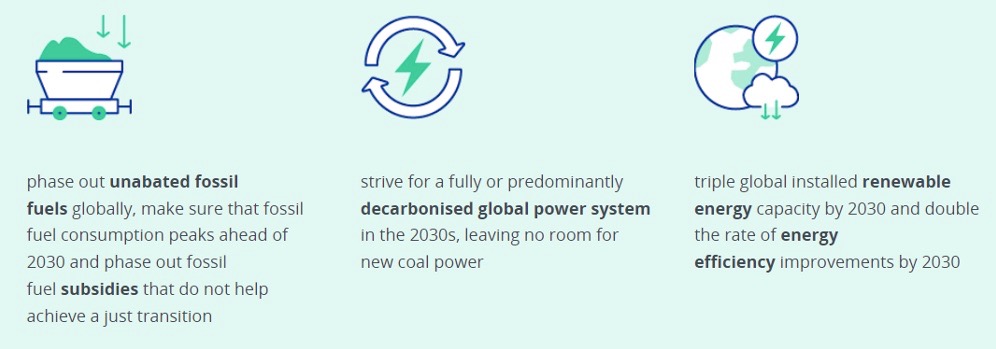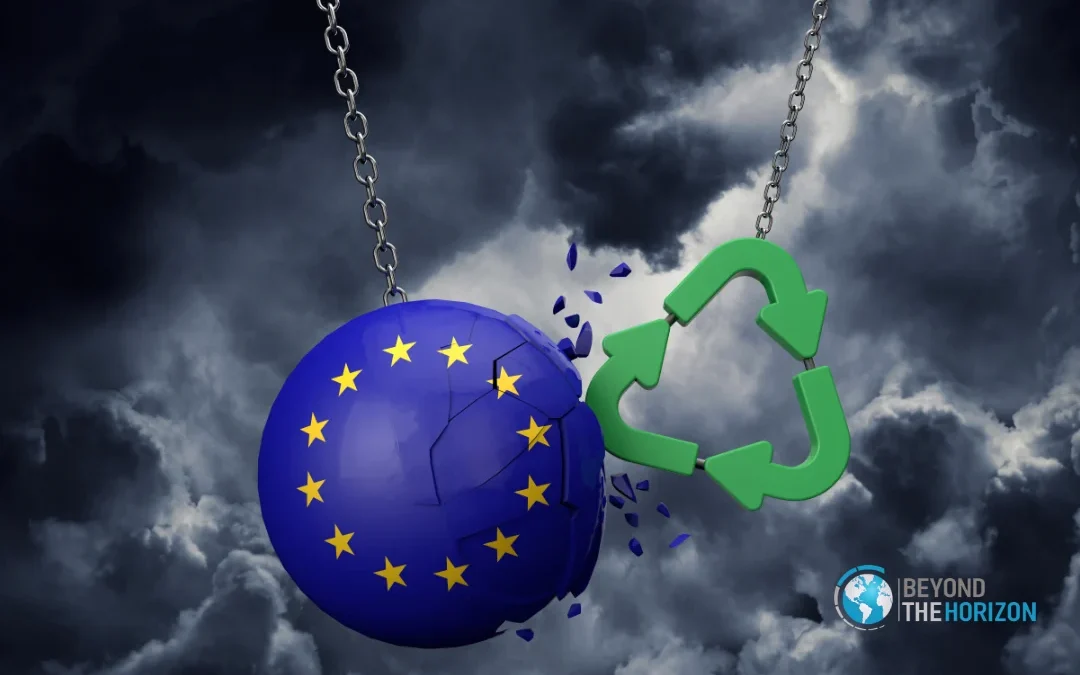The EU Green Deal is the most comprehensive and effective policy package to respond to the adverse impacts of climate change. On the other hand, geopolitical tensions, high inflation, rising populist political discourses and energy crises create an inconvenient global conjuncture for its viability. COP 28 bears signals about the EU’s chances to achieve the Green Deal targets, including reducing greenhouse gas (GHG) emissions by 55% by 2030.
Phasing out fossil fuels
The dependency of the world economy on fossil fuels is one of the significant obstacles in the fight against climate change. New technologies, comprehensive infrastructures, significant financial resource shifts and changes in customer behaviours are needed to substitute fossil fuels with alternative energy resources. The intense lobbying power of the fossil fuel industry and its relationship with policymakers, which were visibly felt during COP 28, put up conspicuous resistance to the efforts to limit global warming.
Still, the phrase “Transitioning away from fossil fuels in energy systems” is the most remembered part of the COP 28 deal. While some claim that it is either insufficient or misleading to consider phasing out fossil fuels as an urgency to stay within the 1.5 degree limit, others, including Ursula Von der Leyen, the head of the European Commission, welcomed it as the “post-fossil fuel era” for the first time in the history of COP summits. The central theme in the discussions of future COPs will be positioned around the actions related to reducing the role of fossil fuels in global economies. It seems the EU has partially achieved its pre-COP 28 targets by including tripling renewable energy targets and doubling energy efficiency targets by the year 2030.

Figure – 1 : Expectation of EU from COP 28 (Source: European Council)
The results of the first global stocktake
The history of COPs is replete with broken promises by nations. The first global stocktake took a mild picture of this trend in COP 28. Although most nations have committed to reducing their GHG emissions and developing effective measures against climate change, the gap between actions and words is unconcealable. The outcomes of the global stocktake contain many shortcomings, such as “knowledge gap”, “adaptation gap”, “investment gap”, and “implementation gap”. “Persistent gap” in the capacity of developing nations to adopt climate-friendly policies that align with the regulations under the EU Green Deal weakens the effectiveness of global climate actions.
Despite all pitfalls and hitches (COVID-19, invasion of Ukraine by Russia, etc.), the institutions of the EU have managed to finalize the legislative procedures of major Green Deal regulations. It is time for the EU members to digest these legislative pieces and turn them into reality. As the main trading partner of more than 80 countries, the performance of the EU in using its “Brussel effect” to force other nations to follow a similar path will undoubtedly depend on the determination and political stance shown by the EU policymakers in implementing the Green Deal regulations.
Just Transition
Climate injustice shakes the faith of vulnerable groups and countries to the negative impacts of climate change. People of small islands in the oceans, women, children and indigenous people did not have sufficient opportunities to make their voices heard in the halls of COP 28. Prof Daniela Schmidt from the University of Bristol voices this concern, saying: “There are still trillions in subsidies given every year to fossil fuel industries who make money for their shareholders ignoring the consequences. Why is that money not redirected to help communities adapt, reduce vulnerability, create justice, and change the way we live?” Different groups have harshly criticized the United Emirates as the host country of COP 28 for its role in global warming. Its selection as the host country can be interpreted as a sign of deficiency in the direction of global transition.
EU tries to strike the right balance in implementing its climate policies by developing policy tools to gain the support of vulnerable groups to prevent any social unrest like yellow vest movements. Social Climate Fund and Modernization Funds aim to protect disadvantaged groups against the unfavourable impacts of climate policies like greenflation. Similar financial and political instruments are required at the global level. The level of financial resources is far from meeting the needs of potential victims of climate change.
Conclusion
It is difficult to assert that the results of COP 28 can be regarded as a victory for the EU in terms of shaping global climate policies. Still, the impacts of the EU Green Deal on other countries’ climate policies cannot be totally ignored either. The Carbon Border Adjustment Mechanism, the inclusion of maritime in the EU Emissions Trading System and the Corporate Sustainability Reporting Directive are the critical pieces of the EU Green Deal that force other countries to transition into low-carbon economies and reduce the use of fossil fuels.
One of the main problems with the results of COP 28 is the lack of any enforcement mechanism that limits the implementation and financial gaps in Nationally Determined Contributions or NDCs. That is why especially vulnerable countries distrust developed countries about whether the promises made in COP 28 will be kept. The EU Green Deal can be a de facto economic and political enforcement mechanism to enhance the performance of future COPs.

